Downloading and installing VLC Media Player.
This article will summarize the steps required to successfully download and install VLC Media player.
Table of Contents
1.Navigating to the VLC Website.
2.Downloading the application.
3.Installing the application.
4.Finalizing installation.
VLC Media Player is a powerful cross-platform media player that supports most media types as well as older physical formats like CD's, DVDs, etc. as well as various streaming protocols.
One of the biggest advantages of VLC is that it comes pre-packaged with most codecs that are needed to play back media files. It is a completely free, powerful playback and media conversion tool out there. In this article we will guide you on how to download and install VLC media player on your PC.
Head over to the VLC Website or you can type VLC Media Player in Google Search.
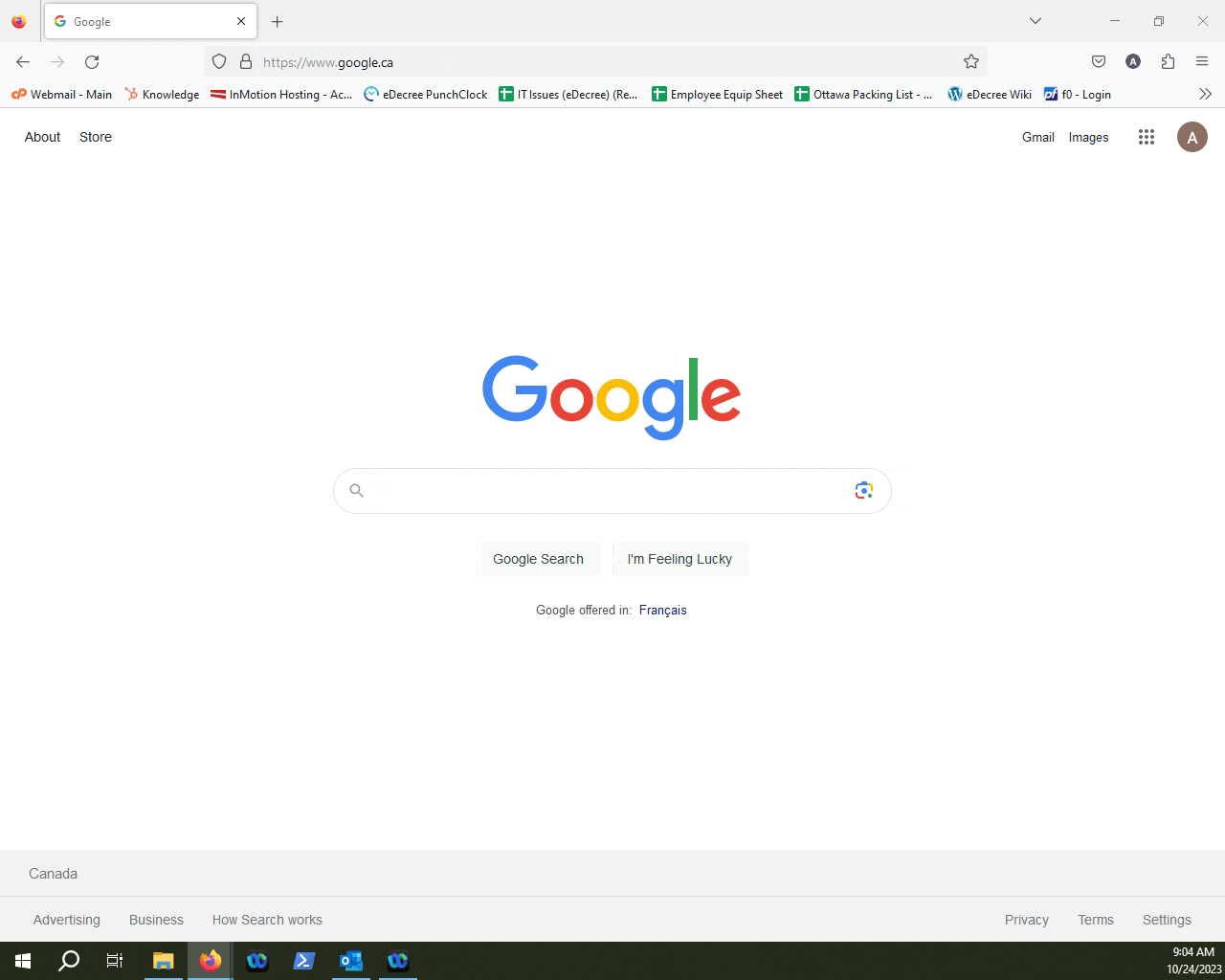
Next, click Download VLC.
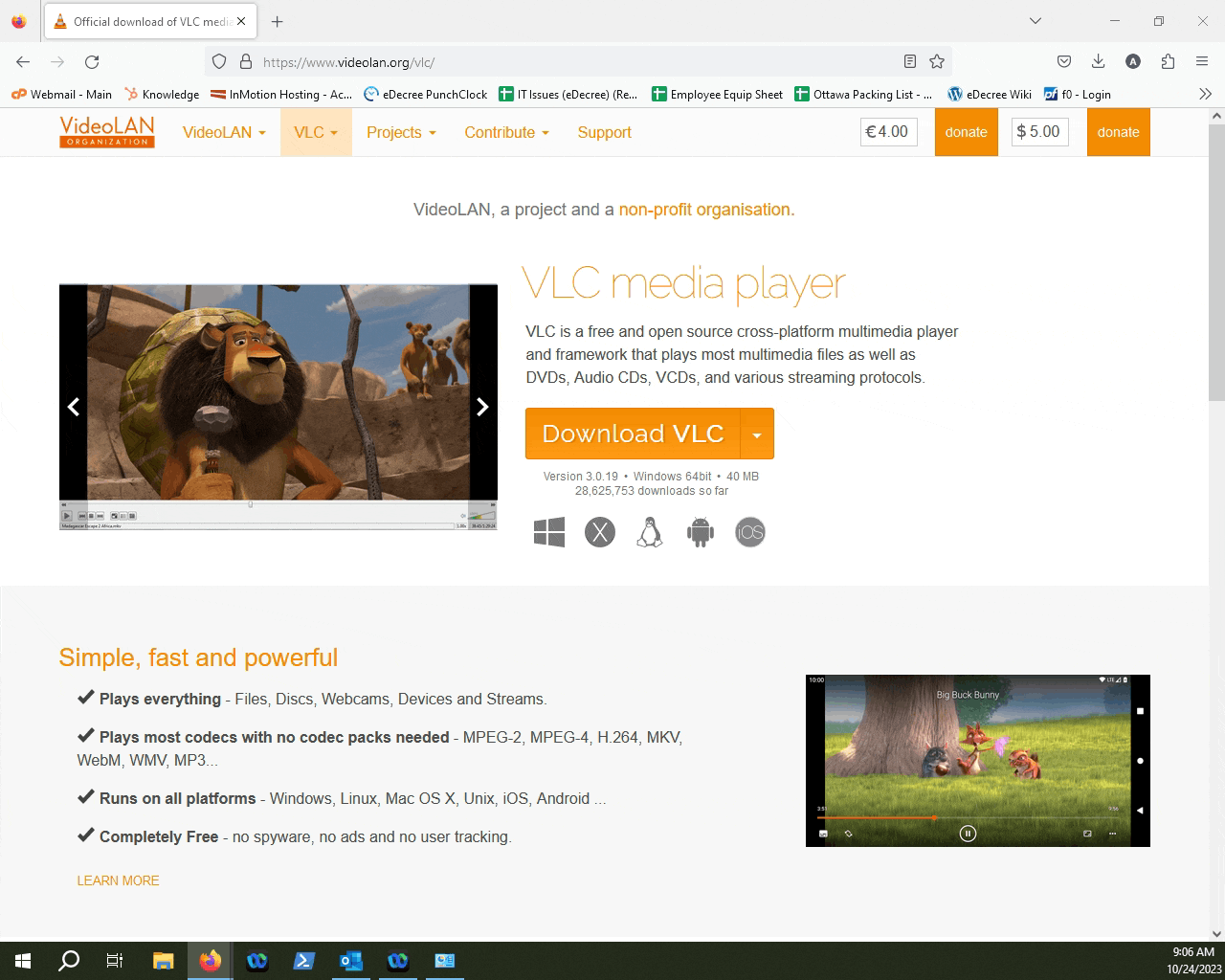
NOTE: This article covers installing VLC on a 64-bit version of Windows. If you want to find out what version your copy of Windows is, you can check out this article here.
Run the installer.
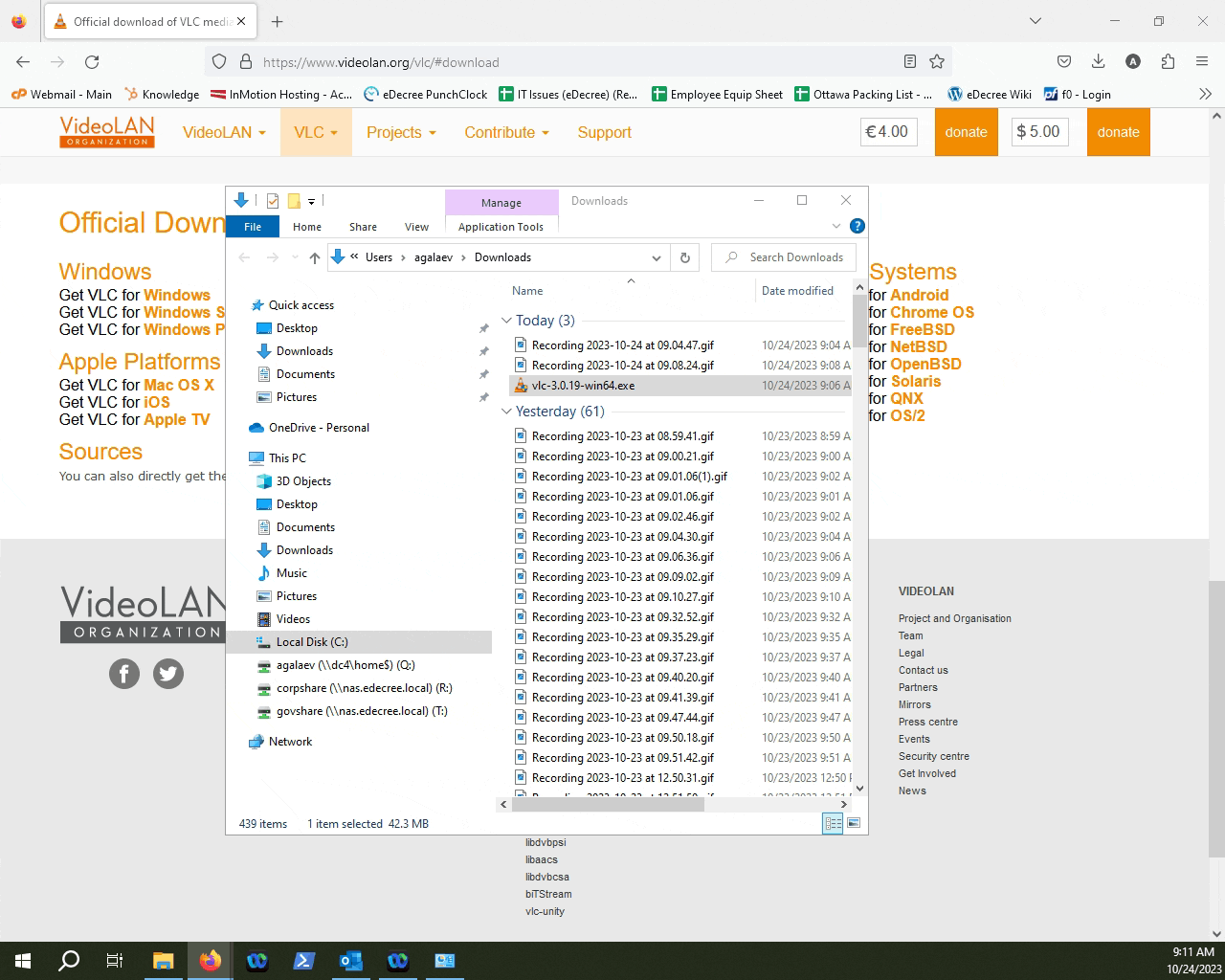
Follow the prompts to install VLC onto your computer. You can leave everything at their default values.
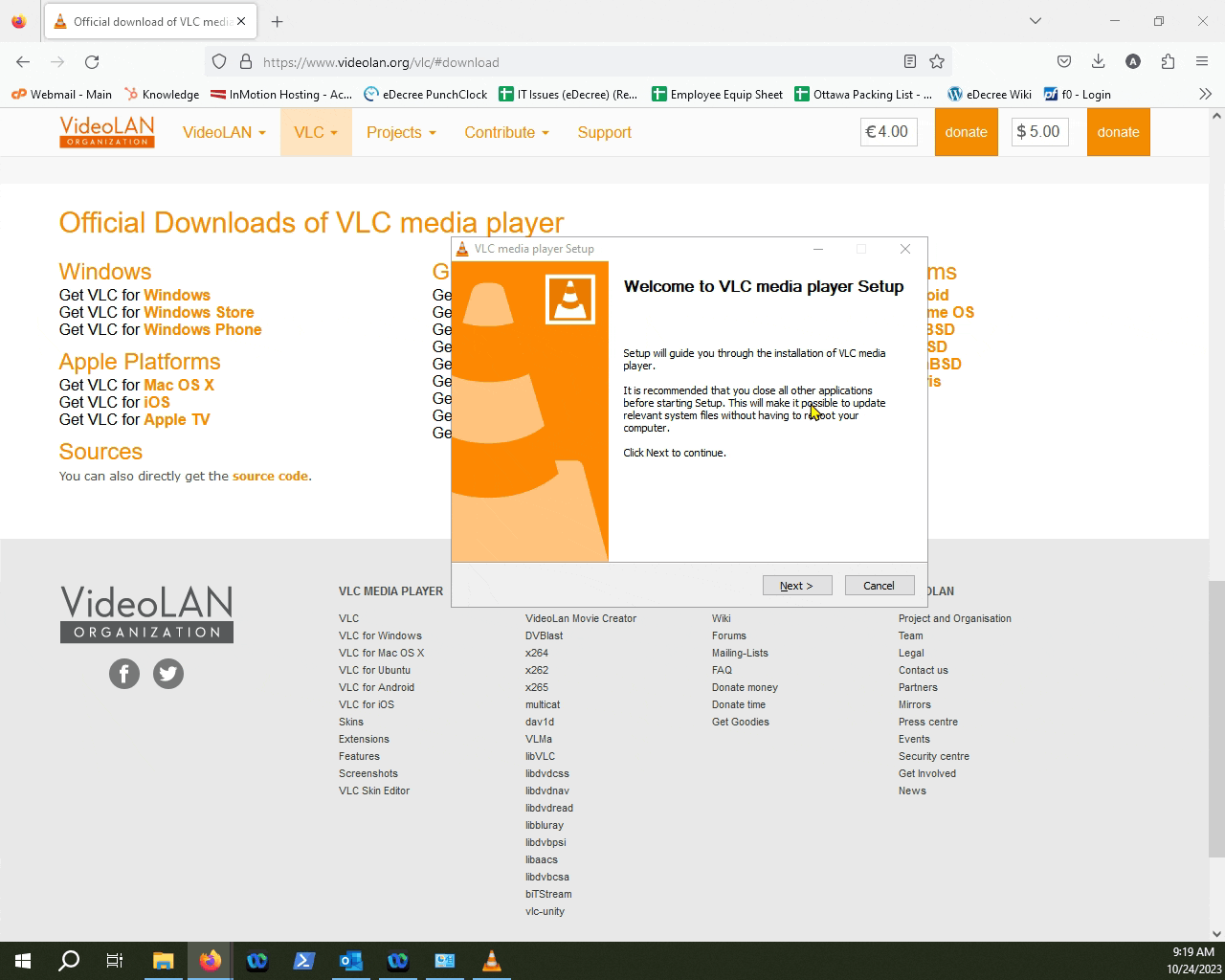
Click Finish to finalize the installation.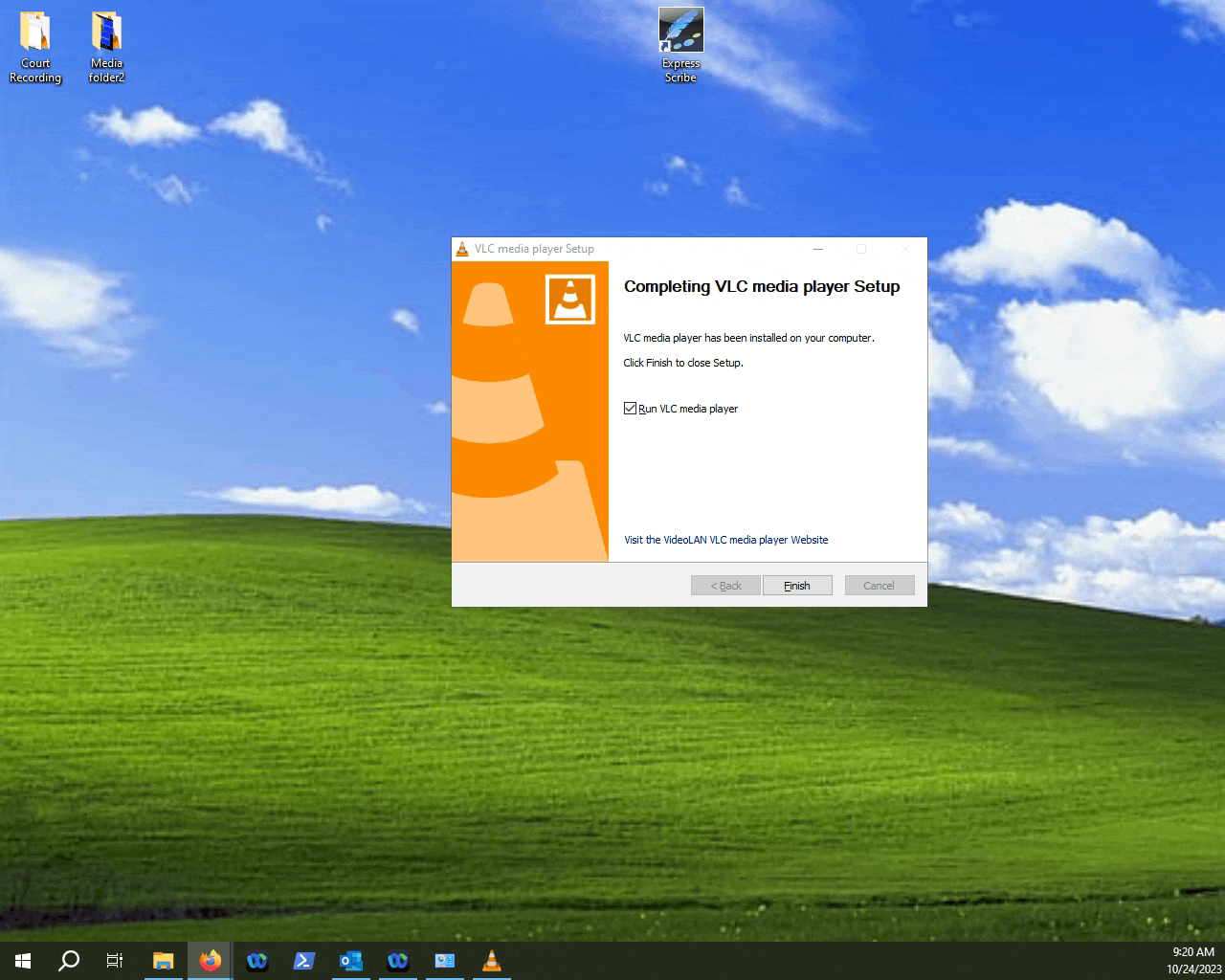
NOTE: You might get a pop-up asking to allow metadata access to your network, which means VLC could access the internet to gather metadata for the medial files (things like cover art, artist names, etc..) You can choose VLC to not gather that data, as it will not impact the performance of the program.